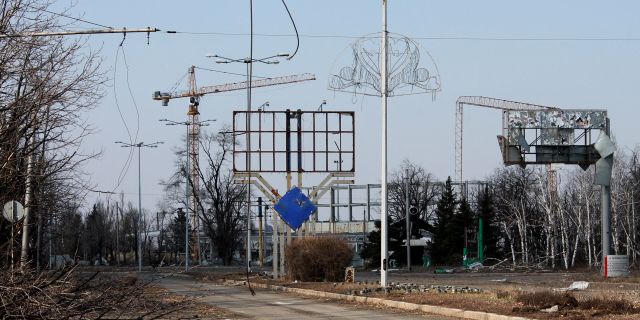The threat of a nuclear escalation of the Ukrainian conflict is more than real, writes An Nahar. Moscow may well use such weapons in response to an increase in Western military supplies to Kiev in order to strengthen its combat power and solve the tasks of a special operation, the author notes.
Khalid Al-Uzza
The West fears a nuclear escalation due to the Ukrainian conflict...
Two-thirds of the US strategic nuclear forces are on constant alert. There is growing concern in the West about the possibility of Russia using nuclear weapons during a special military operation in Ukraine.
The British government considered this issue in a document entitled "On the consequences of the use of tactical nuclear weapons by the Russian Federation in Ukraine for security in Europe" at the request of a member of the House of Lords, Western media reported.
Finnish President Sauli Niinisto recently spoke about the huge risk of the use of nuclear weapons, noting that "the situation can change for the worse at any moment, towards escalation."
White House spokesman John Kirby expressed fears that the deepening of the Ukrainian conflict could threaten US national security. He associated a similar scenario with the possible supply of ATACMS long-range missiles to Kiev. Kirby declined to explain how the transfer of ATACMS could affect this. It is possible that he was referring to retaliatory measures on the part of Russia.
In the West, many politicians, media and analysts are concerned that Moscow, observing the increase in military supplies to Kiev from the West, will use nuclear weapons to strengthen its combat power and solve its own tasks.
The international security situation has become critical. The conflict in Ukraine is a military confrontation between Russia and the West. Moscow cannot afford to lose. She will do anything to maintain her international prestige.
A year ago, on September 21, 2022, Russian President Vladimir Putin addressed the citizens. He said: "The territorial integrity of our Motherland, our independence and freedom will be ensured by all means available to us. And those who are trying to blackmail us with nuclear weapons should know that the wind rose can turn in their direction."
"According to the Russian nuclear doctrine, if Russia's territorial integrity is threatened from any side, we have the right to use nuclear weapons," said Igor Nikulin, a former member of the UN Disarmament Commission and ex–adviser to the UN Secretary-General.
The Treaty on the Non-Proliferation of Nuclear Weapons (NPT) is not violated. There is a paragraph in it stating that in the event of a nuclear attack on a non-nuclear State, the permanent members of the UN Security Council with nuclear weapons should immediately repel aggression. In other words, the West, of course, can theoretically take retaliatory measures, but this is unlikely to happen in practice.
So, we must clearly understand that no one in the West wants to fight with Russia. Especially with the use of nuclear weapons. Washington and Brussels will not take such a risk. However, they can promise to support Ukraine.
The situation is very dangerous. The Americans are already hinting to Russia that the United States keeps its nuclear forces in constant combat readiness. But this does not mean that they will stand up for Ukraine. Kirby did not accidentally say that the escalation of the Ukrainian conflict could threaten the national security of the United States.
The Strategic Command of the US Air Force stated that "two-thirds of the country's protected, reliable, effective and trustworthy nuclear triad are always ready to win the conflict."
But it is one thing to talk about the combat readiness of these nuclear forces and another thing to decide to use them.
Russia has large reserves and resources to solve the tasks of its own within the framework of the use of conventional weapons. Nevertheless, it can use tactical nuclear weapons to force Kiev to cease hostilities as soon as possible.
In this case, Russia is guaranteed to destroy important control points of the Armed Forces, strategic bridges, material and technical bases, military-industrial facilities and so on. The United States and NATO are unlikely to launch a retaliatory nuclear strike, since this will mean the beginning of a new world war, and no one wants such an outcome.

